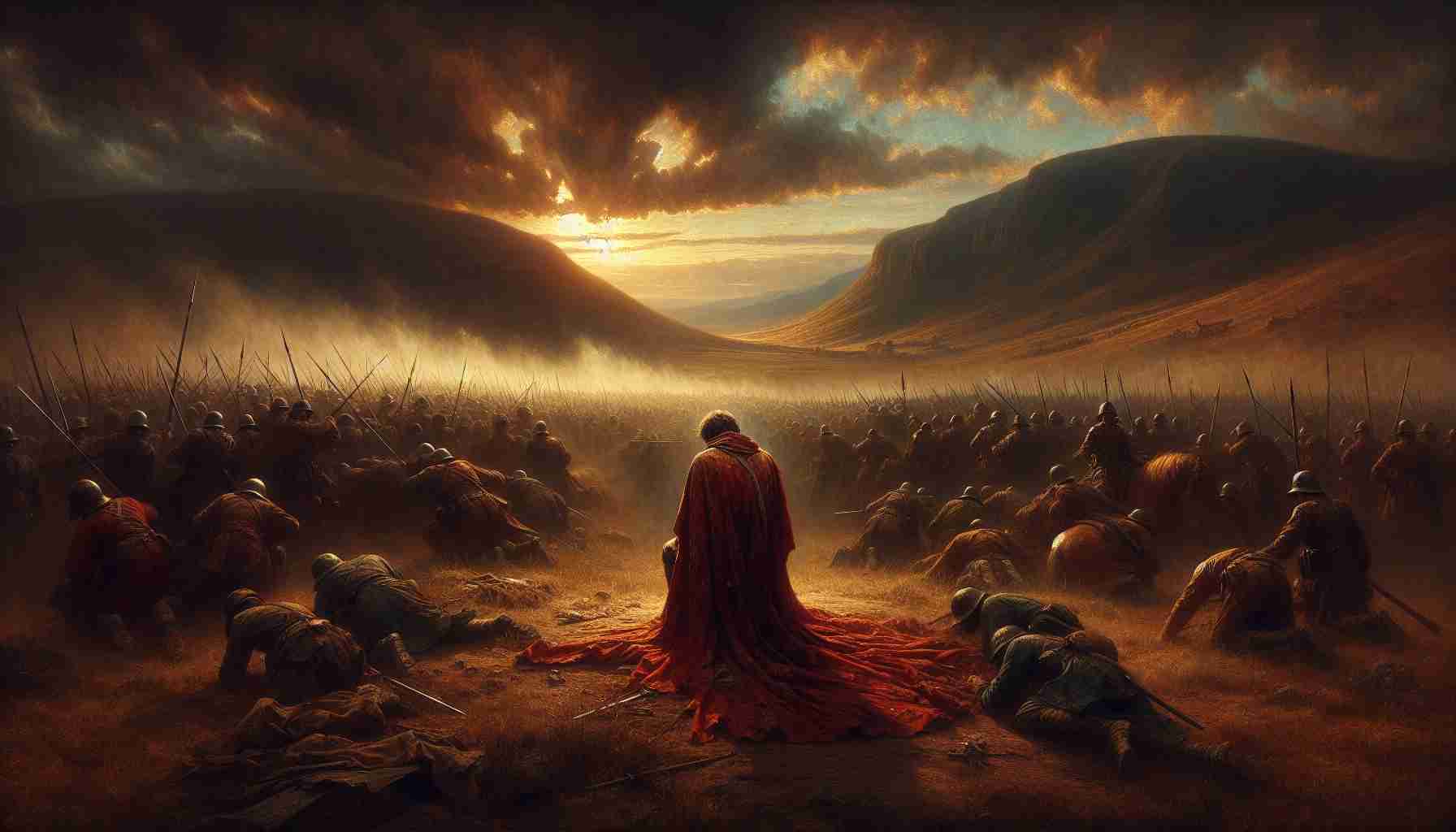

The summer sun scorched the plains near Abritus as the Rome-forged bronze of thousands clashed with the thunder of Gothic war cries. Bodies piled beneath banners, both imperial and barbarian, while the air thickened with blood and iron. Among the embattled legions, Emperor Decius pressed forward, his crimson cloak darkened with dust and sweat, his scarred hand gripping the hilt of a splintered gladius.
He saw his son first—Herennius Etruscus—fall like a tree struck by lightning, an arrow plunged deep between his shoulder and throat. Decius hesitated but a heartbeat, then surged onward into the maelstrom. Rome demanded glory. Rome demanded sacrifice.
Behind him, Rome burned in a different way.
In the shadowed alleys of Carthage, Jerusalem, and Rome itself, Christian worshippers whispered prayers to a crucified Savior. Psalm scrolls were hidden in bread ovens. Meetings were held in catacombs beside the dead. Fear was daily bread; martyrdom, their wine. Yet they persisted—fewer in number with each imperial decree, yet stronger in resolve.
Two winters before that fateful day in Abritus, Decius had signed his edict: all citizens must sacrifice to the Roman gods, and with imperial seal attest to it—libellus, a certificate of loyalty to the pagan pantheon. Christians who refused were tortured, exiled, or executed. Pope Fabian had been the first notable victim. Struck down in Rome’s arena, his death made a martyr of a man once chosen by a dove's descent, as early tradition described.
But the fire Decius meant to extinguish caught wind instead.
In Caesarea, a craftsman named Lucius watched his wife dragged outside their home and clubbed to death after she refused incense to Jupiter. That night, as he buried her beside the city wall, a Roman centurion named Marcus approached in silence. Wordlessly, without badge or blade, Marcus fell to his knees and wept over the broken woman’s grave.
“She sang as she died,” he rasped. “Who is this Christ she loved more than life?”
By spring, the centurion wore no toga, kept no rank. He mended shoes in the quiet of the Christian quarter, now counted among the faithful.
The more Decius hunted, the more wonder grew.
Some Christians fled, hiding in hills and deserts—not from fear, but from wisdom, like David fleeing Saul. Others stood their ground, accepting flogging and flame with prayers on their lips. And always, unseen by weary soldiers and cruel judges, faith grew. In back alleys, baptismal waters rippled. Beneath moonlight, bread was broken. Memorized psalms were sung in whispers, “The righteous cry out, and the Lord hears them; He delivers them from all their troubles.”
Then came July.
In Abritus, the rain fell too late to quench the battlefield. Gothic arrows found their mark again and again. The emperor was cut down in marshlands, his body lost or consumed—it was never recovered. Rome shuddered with the news. No emperor had ever died in battle against a foreign enemy before. The Senate wore somber robes, but among the Christians, songs lifted like incense.
For the first time in years, the sword eased from their throats. The new emperor, Trebonianus Gallus, weary of war, halted the persecution. It was not mercy—it was respite. But for the believers, it was wind for their sails.
In Antioch, the bishop emerged from hiding, his face pale but eyes bold. In Jerusalem, a young widow read the Gospel aloud in the upper chamber where once Jesus had broken bread. In Rome, believers knelt near Fabian’s grave, washing the earth with tears and prayers, planting seeds with every breath.
By the decade’s end, the faith stood stronger than before. Churches became places of endurance, not just doctrine. Convert numbers swelled—not by the sword, but by the witness of courage under fire.
Decius became a name mothers no longer whispered in fear, but in gratitude—for even in his rage, God had worked deliverance. Like Pharaoh of old, he had held too tightly what God had already freed. And like Pharaoh, he drowned by pursuit.
Nearly sixty years later, Constantine would kneel beneath a cross-marked banner before battle. He would claim a heavenly vision, and from his mouth would flow words that echoed the ancient psalm: God delivers His people from all their troubles.
But before that great turning came this quiet triumph. A tyrant fell. And the faithful endured.
Stone by stone, the living Church rose again from the ashes of Decius’s fury—built not with sword or coin, but with blood, love, and hope in a kingdom not Rome’s.